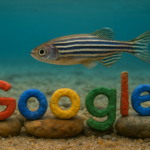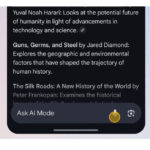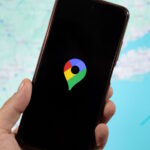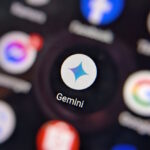Google brings Gemini to Apple iPad

After what feels like an eternity, Google has finally brought a native Gemini app to the iPad. No more stretched-out iPhone version or clunky compatibility mode. This release is the real deal, folks -- a proper iPad app that takes full advantage of the larger display and multitasking capabilities Apple’s tablet has to offer.
Thankfully, this new Gemini experience isn’t just about a fresh coat of paint. It really improves how you use AI on a tablet. Thanks to support for Split View, you can now run Gemini side by side with other apps. That means doing research while writing, or generating code while watching a tutorial -- all without switching screens.
Google backs Elementl Power to build advanced nuclear sites across America

Google is continuing its support of nuclear energy. Following an agreement with Kairos Power last year, the search giant just signed a new deal with Elementl Power to fund the early development of three advanced nuclear energy sites in the United States.
Each location is expected to support at least 600MW of power -- enough to keep the lights on for hundreds of thousands of homes. This partnership isn’t just about cleaner energy, however. You see, it’s also about securing reliable, always-on power for Google’s growing network of data centers, especially as artificial intelligence keeps ramping up demand.
Google reveals ZAPBench to predict brain activity in zebrafish and unlock new AI-powered neuroscience research

If we are lucky, Artificial intelligence might one day help scientists understand the human brain the same way language models predict the next word in a sentence. And now, that future is closer to becoming reality thanks to a new project from Google Research, Harvard University, and HHMI Janelia. You see, these teams have introduced the Zebrafish Activity Prediction Benchmark, better known as “ZAPBench,” which could help researchers create more accurate models for predicting brain activity.
ZAPBench isn’t just another dataset, folks. Actually, this new tool is based on two hours of brain recordings from larval zebrafish, capturing how roughly 70,000 neurons fired in response to different virtual reality scenarios. These tiny fish were shown various environmental changes, including shifting light patterns and moving water currents, while researchers recorded brain activity at an impressively detailed scale.
Google warns DOJ breakup plan could destroy Android and Chrome -- plus hurt the US economy

Google is hitting back at the Department of Justice over a proposed plan that could force massive changes to how the company operates. The DOJ, which sued Google back in 2020 over search distribution practices, is now pushing for remedies that Google says go way too far -- and could end up hurting American consumers, innovation, and even national security!
In a new blog post, the search giant says the proposed changes are not only unnecessary but also dangerous. At the heart of the issue is how Google partners with phone makers and browsers to make its search engine the default. According to Google, people use its search because they want to -- not because they’re forced to. The company says blocking these deals would just make it harder for people to get to the services they prefer, with alternatives like Microsoft’s Bing being pushed on users instead.
Google has lost its ad tech monopoly trial... and Mozilla is scared

In a decision that surprised few, a judge has ruled that Google is guilty of “willfully acquiring and maintaining monopoly power” in advertising technology. Google (or its parent company, Alphabet, at least) is obviously unhappy with the ruling, but it’s not the only one.
Mozilla was one of the first companies to react to the ruling, and CEO Laura Chambers has expressed alarm about what it means for the future of its Firefox web browser. She also voices concerns about the implication of the rules for the open web and online industries.
Google is changing the URL of its search engine for billions of people

Google is making a huge change to the most famous and widely used search engine in the world. And it is the global nature of Google search, and the internet in general, which is at the heart of the change.
For a very long time, Google has used different URLs for its search engine in different countries -- google.co.uk in the UK, google.es in Spain, for instance. But no more. The company has announced that different country code top-level domain names (ccTLD) are no longer needed and will not be used.
Google brings powerful visual search to AI Mode for Android and iPhone users

Google may be the current king of search, but thanks to competition from artificial intelligence services like ChatGPT and Grok, its continued dominance is becoming less guaranteed. In other words, Google can no longer rest on its laurels with search -- it must either evolve or dissolve.
In an effort to keep up with the times, Google is delivering its AI Mode feature to more users in the U.S. today. This essentially adds new capabilities that combine visual search with the Gemini AI model. Originally limited to Google One AI Premium subscribers, the feature is now available to millions through the Labs program, accessible in the Google app for both Android and iPhone.
Google launches Sec-Gemini v1 AI model to improve cybersecurity defense

Google is once again leaning into its Gemini brand, this time with a focus on cybersecurity. You see, the search giant has announced Sec-Gemini v1, an experimental new AI model. It is designed to help security professionals fight back against cyber threats using real-time data and advanced reasoning. Because AI makes everything better, right?
Look, folks, attackers only need to get lucky once, while defenders have to be right every time. That unfortunate imbalance has made cybersecurity a nightmare for many organizations. Google is hoping AI might change that, giving defenders a slight edge.
Google unveils Gemini 2.5 in a desperate bid to catch up with ChatGPT

Today, Google introduces Gemini 2.5. Initially, it will only be available as the experimental Gemini 2.5 Pro. And yes, as you can predict, the search giant is calling its newest AI model the most advanced version yet.
While the company promises huge improvements in reasoning and coding, the move feels more like Google playing catchup to OpenAI’s ChatGPT. Let’s be honest, folks -- ChatGPT has dominated public attention and enterprise adoption for months.
New ‘Share screen with Live’ option appears in Google Gemini so the AI assistant can view your screen and see through your camera
AI-powered digital assistants are now (almost) ten a penny, and the rate at which they are gaining new capabilities is nausea-inducing. Google Gemini has long been able to make use of screen grabs as a prompt or part of a prompt, but now things are moving up a notch.
Some Gemini users are starting to notice a new “Share screen with Live” option on their devices. This goes far beyond the ability to analyze and use static screenshots, enabling Gemini to track what is on-screen in real time -- including user activity and what is picked up by the camera.
Google admits accidentally deleting Timeline data of Google Maps users due to a ‘technical issue’

Users of Google Maps have been complaining in growing numbers that their Timeline data has mysteriously vanished. Now Google has confirmed that this was down to a “technical issue” rather than user error, and warned that there will be no way to recover this data for some people.
The Timeline feature of Google Maps stores location history, and is used by many people as a way of keeping track of places they have visited. Now, for those who were unaware of a recent change to the way Timeline data is stored, the technical SNAFU means that these memories are lost forever.
Gmail search gets worse as Google forces AI powered results on users

Google is once again injecting AI where it doesn’t really belong. This time, sadly, it’s Gmail search -- something many of us use often. The search giant has started rolling out a change that sorts email search results by “most relevant” instead of the usual chronological order, and to be honest, it feels more like a nuisance than a helpful upgrade.
According to Google, this new AI-powered system will take things like recency, click behavior, and frequent contacts into account when surfacing results. In theory, that sounds useful. In practice, however, it will probably just bury what you’re actually looking for under a pile of algorithmic guesses.
Google Pixel 9a crushes Apple iPhone 16e with smarter AI and a better price

After many leaks, Google’s Pixel 9a is finally here! For anyone not locked into Apple’s ecosystem, it’s looking like the smarter choice over the iPhone 16e. At just $499, it packs AI-powered features, a pro-level camera system, and the powerful Google Tensor G4 chip -- all at a lower price than Apple’s so-called budget offering.
The Pixel 9a isn’t just another mid-range phone -- it’s got some legit flagship-level perks. Its 6.3-inch Actua display is the brightest ever on an A-series phone, hitting 2700 nits, while the 120Hz refresh rate makes for smoother scrolling than the iPhone 16e’s 60Hz screen. Google’s color choices -- Peony, Iris, Porcelain, and Obsidian -- also bring more fun and variety compared to Apple’s standard options.
Google announces new healthcare tools and features, including advice from people with the same symptoms as you

When illness strikes, many people turn to 'Doctor Google' for health advice. While this can be helpful in many cases, searching for symptoms can also throw up some terrifying potential 'diagnoses', but AI has been used to try to avoid providing either fearmongering suggestions or unhelpful advice.
Google is aware that it is often a first port of call for people trying to work out what condition they may have and how to best approach treatment, and the company has announced numerous improvements and new feature to make its offerings more helpful and trustworthy -- as well as starting to provide suggestions from non-medical experts.
Like it or not, Google Assistant is being replaced by AI-powered Gemini on millions of devices

Google Assistant is being consigned to history. Almost a decade after it first launched, Google’s voice-activated digital assistant will be replaced by Gemini, Google’s updated AI-powered assistant.
If you’re an existing user of Google Assistant, you will no doubt have noticed the offer of switching to Gemini. While this has been, and remains for now, an optional switch, soon there will be no choice -- it will be Gemini all the way.
© 1998-2025 BetaNews, Inc. All Rights Reserved. About Us - Privacy Policy - Cookie Policy - Sitemap.